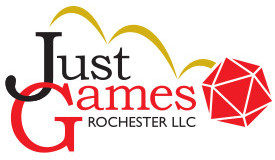“You want to do what?”
I brought my hand to my temple, rubbing in small circles as though it would make my player’s idea any less reckless.
“I said I want to shove my friends out of the way of the Guildleader’s spell.”
Oh. They weren’t kidding. The Guildleader’s amulet was crackling with searing electric power, sure to put an end to their once gruff and uncaring warlock. The bag of Chex Mix crackled from across the table as a player grabbed another handful of saltiness.
“You know Duantanomo doesn’t come back from this, right?”
“Duantanomo knows.”
My mouth curled into a smile. Duantanomo knew.
It was magical.
I was eight years old when I read my first fantasy novel. I was an avid reader who had read every book on my rickety shelf enough times that the spines were giving out, but this was the first time I had been truly and completely mesmerized by fiction. Sure, the Velveteen Rabbit was a nice enough story, but now I was wrapped up in a world of swords and sorcery, where warm-hearted and smoke-ring-blowing wizards knocked on your door with their 13 dwarven friends, and hulkling but dim-witted trolls were ready to make you into hors d’oeuvres.
It was magical.
But as the years of eagerly devouring novel after novel passed, I found that even in these enthralling worlds something was still off. Unfortunately, I wasn’t there in Middle Earth traveling to the fiery keep of Mordor, nor was I on a flat disc carried on the backs of four elephants and a turtle of cosmic proportions. For me that was the status quo of fantasy, to peek through a book-shaped rift into another world where fantastic and wild spectacles were as real as the paper they were printed on… but I could never venture through them myself.
It was, much to the dismay of my younger self, not magical.
So as many burnt out and bored high schoolers had done before me, I discovered the world of tabletop roleplaying.
Dungeons and Dragons is a game where you and your friends embody interesting characters and have an engaging, bewildering, and sometimes emotional experience in a shared world that exists in your mind’s eye. The core mechanic of the game is that if your character wants to do anything of note, you roll a twenty-sided die, add the appropriate modifiers and then based on that number an in-world outcome is determined.
It’s from these simple rolls of the dice that legends are born, heroes triumph, and sometimes those same heroes face a calamitous and bitter end.
It’s magical.
As a player in the world of Dungeons and Dragons, you can take on the persona of anyone you have ever wanted to be. You carefully (or not so carefully) sculpt your character sheet into any role you like, be it a wizard, monk, bard, or anything between. You get to be the hero. You’re there slaying monsters along the Sword Coast, solving a mystery on the sprawling city streets of Ravnica, or having a laugh at the inn.
Want to be a spunky sorcerer whose wild magic tends to get out of control?
Want to be an ex-warrior turned hermit who’s died once but doesn’t like to talk about it? Want to be a lizard person with a shattered mind who’s willing to try anything to fix it?
This is the game for you.
One player, usually the one who’s most willing to do the most reading, takes on the crucial role of Dungeon Master. They are the ‘guide’ of the table who weaves the tapestry of the story, establishes the wonders of the world, and plays the role of any character that isn’t one of the players. It requires more work than being a player and a lot of outside preparation, but it is such a rewarding role to play.
Dungeons and Dragons is a home for heroes and outcasts. It’s for wizards who’ve memorized their entire spellbook and for sorcerers who only need Fireball. It’s for hardcore fans of any and all adventure, and for those who’ve lost that spark they once had for fiction.
Every now and again, my mind wanders back to the story we told together.
“So you’re sure then.”
“Like I said, Duantanomo’s certain.”
Cue a clattering of dice against wood, and a thunderous blast of crackling red light.
It’s magical.
